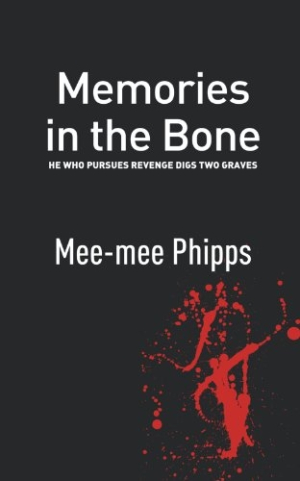
Memories in the Bone
He Who Pursues Revenge Digs Two Graves
Drawing on her Chinese heritage and her experiences living in many countries, Mee-mee Phipps has put together an engaging story of a young soldier driven to flee a lost cause to start life anew abroad. Set in nineteenth-century China, Australia, and New Zealand, Memories in the Bone is both a solid adventure yarn as well as a believable chronicle of the lives of educated Chinese who immigrated to and made their fortune in new lands across the seas.
The core of the novel is the story of Zhou Yu, a soldier in the Taiping Rebellion, a massive peasant uprising that occurred at the same time as the American Civil War, though on a much larger and bloodier scale. His experiences in that fight are told in flashback, as are the stories of his older brother in the war, and of their father in his younger days. Despite breaking up the principal narrative, these tangents are excellent little stories in themselves. With their battles, sometimes sweet or comical sexual exploits, and explorations of life in imperial China, the flashbacks are in some ways both more entertaining and more interesting than the main plot.
The primary story line of Yu journeying to Australia, working in the gold fields, opening an import-export business, and dealing with the likes of “Mr. Fifty Per Cent Chong” and the MacRae brothers (who take great offense at Yu’s brief flirtation with their sister) is the stuff of a rather tepid, predictable television miniseries. The tale bubbles along nicely and is well written, but it does not really come to life until Yu returns to China to take a bride in an arranged marriage. During Yu’s return to his homeland, partly through flashbacks involving his shameful experiences as a soldier (including the rape and murder of a wounded girl), the reader finally gets to see inside the main character’s troubled soul.
A final turn of plot—in which Yu runs off to New Zealand to live with the Maori, falls in love with a slave girl, and corresponds with his wife back in China by letter—is almost a different book altogether. In this unique twist on Joseph Conrad’s tales of white men traveling in the colonies, Phipps underscores the fact that, regardless of the civilization from which educated, privileged men hail, they are, after all, just men—and deeply flawed at that.
Memories in the Bone is a believable and intelligent read that provides an unexpected look at the life of the Chinese who emigrated from their homeland following the Taiping Rebellion. Phipps’s characters are not the downtrodden, oft-despised, and routinely abused “coolies” so common to other stories set in this era: they are real people of substance and heart. For that alone the author deserves praise—and for many other good reasons, her book deserves to be read, especially but not exclusively by those who share her ethnic and immigrant background.
Reviewed by
Mark McLaughlin
Disclosure: This article is not an endorsement, but a review. The publisher of this book provided free copies of the book and paid a small fee to have their book reviewed by a professional reviewer. Foreword Reviews and Clarion Reviews make no guarantee that the publisher will receive a positive review. Foreword Magazine, Inc. is disclosing this in accordance with the Federal Trade Commission’s 16 CFR, Part 255.
